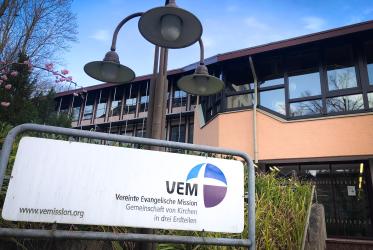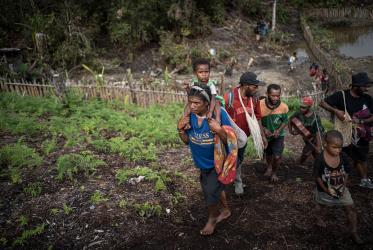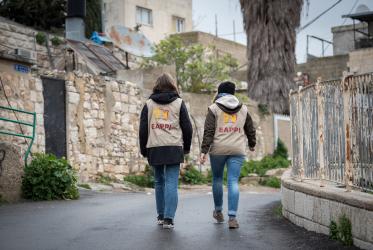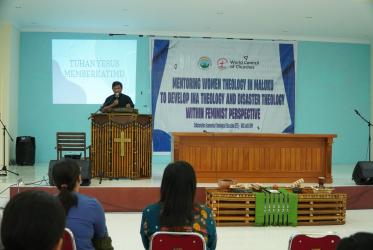‘We call upon all the churches we represent to denounce antisemitism, no matter what its origin, as absolutely irreconcilable with the profession and practice of the Christian faith. Antisemitism is sin against God and man.’ This unambiguous WCC declaration in 1948 has been regularly re-stated over the last 70 years, for example following the antisemitic killings in Pittsburgh in October 2018. In the same spirit, the annual commemoration of International Holocaust Remembrance Day is an opportunity to be welcomed. It focuses a widespread commitment not to forget the Holocaust of the Jewish people (while not excluding remembrance of other genocides) and to help prevent such atrocities in the future.
Such remembering is vital, however uncomfortable it may be. As I am not Jewish, it feels a little presumptuous to be offering my thoughts on International Holocaust Remembrance Day. But perhaps there is some value in sharing an experience of how I have been helped to remember.
Some years ago I visited a noted exhibition on the Holocaust in London. Of course, there was much important information to absorb, but what stays with me are some of the exhibition’s less conceptual moments, such as the huge piles of spectacles and shoes removed from those who were killed. These exhibits – at once ordinary and utterly devastating – penetrated my self-protecting complacency with unexpected power. I too have spectacles and shoes.
I first experienced the exhibition while arranging a joint visit made by the Archbishop of Canterbury and the Chief Rabbi of the United Hebrew Congregations of the Commonwealth. Symbolic events of this kind can have great value in signalling to all members of our communities our shared commitment to remember the past (with all the Christian complicity that involved) and to work together to prevent such things happening again.
I once heard a leading scholar of the history of antisemitism (whose family fled Vienna shortly after Kristallnacht in 1938) speak of the motivation underlying his work. He said, quoting Camus, that he did not want to be ‘one of those who keep silent’. A complacent silence is all too easy, but antisemitism is ‘a light sleeper’, a monster that keeps coming back, in different contexts and different forms. I recall feeling dumb with astonishment at the casual conviction with which someone once rehearsed to me Holocaust denial arguments. We need to be reminded regularly of what happened and of the constantly re-emerging threat of antisemitism.
That is rightly the focus for today, but it is important to add that our commitment at WCC to solidarity with Jews against antisemitism takes us to some difficult places, notably because we believe we are also called to solidarity with Palestinians, and, sometimes, to criticize the policies and actions of the state of Israel. We are grateful for Jewish colleagues who recognise that such criticism is not necessarily antisemitic, though we know they don’t always think we get the balance right. Palestinians also wonder whether the wider world takes their sufferings seriously. This is one of the greatest challenges we face at WCC. With all of the above on our hearts, our prayer is: ‘God of life, lead us to justice and peace.’







